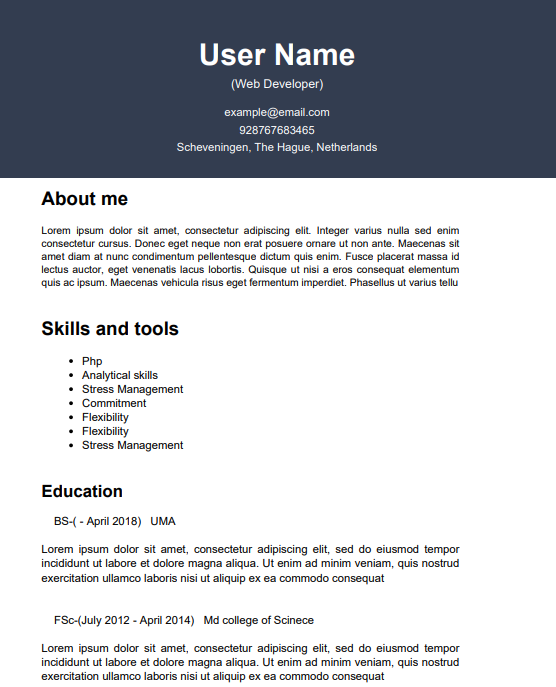How to Write a Resignation Letter in Football
Football is a game where passion meets profession, and while it’s a dream for many to be a part of this industry, there may come a time when one needs to part ways. Whether you are a manager, a coach, a scout or an executive within a football club, penning a graceful resignation letter is paramount.
In this comprehensive guide, we will walk you through the intricate steps and details of writing a top-tier resignation letter within the football industry.
1. Start with a Formal Address
Always begin your letter by addressing the right individual or body. In most cases, this will be your line manager or the person you report to. For instance:
Dear [Name of the Club President/Chairman/Executive Director],
Ensure you’re using the correct titles and names to maintain a professional tone right from the start.
2. State Your Intentions Clearly
Without delving into an extensive background or emotional ties, simply state your intention to resign. For example:
I am writing to formally resign from my position as [Your Position], effective from [Last Working Day].
3. Briefly Explain Your Reasoning
While you’re not obligated to provide a comprehensive reason for your departure, giving a concise explanation can provide clarity. Ensure it is straightforward without becoming overly sentimental:
After much consideration and discussion with my family, I’ve decided to pursue another opportunity that aligns more closely with my long-term career goals.
4. Express Gratitude
Remember to acknowledge the opportunities, growth, and experiences the club has offered you. Keeping it genuine and succinct is key:
I am immensely grateful for the experiences and opportunities I’ve had here at [Club Name]. The lessons I’ve learned have been invaluable.
5. Offer a Transition Plan
To ensure a smooth handover, briefly detail any ongoing projects or responsibilities and your plan to transition them:
I have briefed [Colleague’s Name] about my ongoing projects and will ensure all my responsibilities are transitioned smoothly over the next two weeks.
6. Close Professionally
End your letter with a professional closing, reiterating your gratitude and leaving on a positive note:
Thank you for your guidance and support during my tenure. I hope our paths cross again in the future. Warm regards, [Your Name]
7. Proofread and Refine
Before submitting your resignation letter, ensure that you review it for any grammatical or factual errors. Maintain a tone of respect throughout, avoiding any negativity or criticism.
8. Consider the Delivery Method
In the digital age, it might be tempting to send your resignation via email. However, a printed letter delivered in person (if possible) adds a personal touch and demonstrates respect towards the institution.
9. Seek Feedback
Before finalising, it might be wise to consult a trusted colleague or mentor for their opinion. They can offer a fresh perspective and may catch any points you’ve missed.
10. Maintain Confidentiality
Always remember, your resignation is a private matter between you and the club’s management. Avoid discussing it with teammates, players, or the media until it’s been formally acknowledged by the club.
In Conclusion
Resigning from a position, especially in a dynamic environment like football, requires tact, respect, and professionalism. By following this guide, you’ll be well-equipped to pen a resignation letter that reflects your integrity and respect for the institution you’re parting with.
FAQs
1. Why is it necessary to write a resignation letter in football? A resignation letter provides a formal record of your intent to leave and serves as a professional courtesy to the club or institution. It ensures clear communication of your decision and aids in the transition process.
2. Can I send my resignation via email or does it have to be a printed letter? While a printed letter delivered in person shows a personal touch and respect, circumstances might require you to send an email, especially if immediate communication is necessary. Regardless of the medium, the content and tone of the letter should remain professional.
3. How much notice should I provide before my resignation in football? Typically, a two-week notice is standard in many professions. However, the specific timeframe can vary based on your contract with the football club or institution. Always refer to your contract or speak with the HR department for clarity.
4. Do I need to detail the reason for my resignation? While you’re not obligated to provide a comprehensive reason, offering a brief explanation can give clarity to the club. Remember to keep it straightforward without becoming overly emotional.
5. What should I do if I’m asked to stay on after handing in my resignation? It’s a decision you’ll have to make based on your personal circumstances and future goals. If the club values your contribution and makes a counteroffer, weigh the pros and cons before making a final decision.
6. Is it essential to offer a transition plan in my resignation letter? Offering a transition plan isn’t mandatory, but it’s a sign of professionalism. It demonstrates your commitment to ensuring a smooth handover and minimising disruption after your departure.
7. What should I avoid including in my resignation letter? Steer clear of any negative comments, criticisms, or airing grievances. The letter should remain positive, reflecting gratitude and professionalism.
Image Credit: https://www.ciphr.com/


